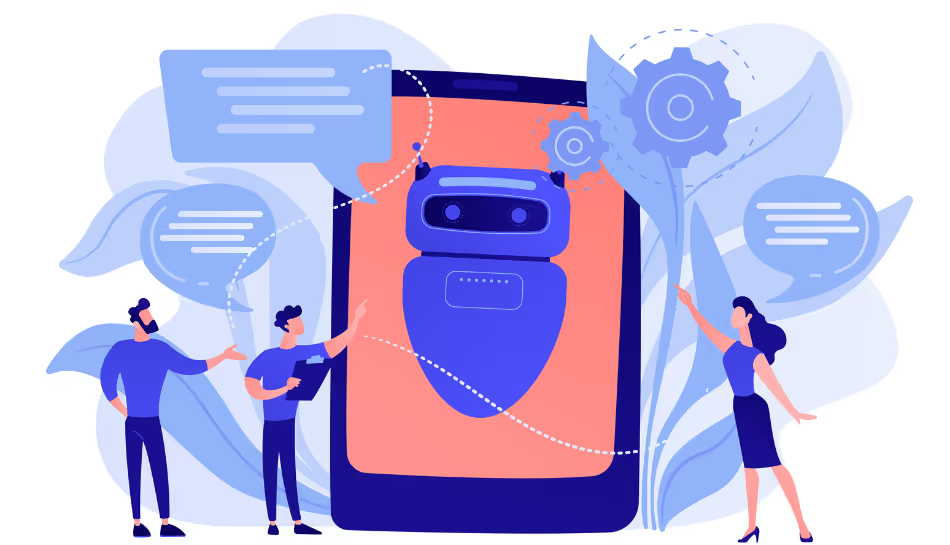Customers have higher expectations than ever in the fast-paced digital environment of today. They demand fast, accurate, and 24/7 service. To meet this demand, businesses are increasingly turning to chatbots for customer service, especially those powered by artificial intelligence (AI). These AI-driven tools are transforming the landscape of customer service management, offering speed, efficiency, and personalisation at scale.
The Rise of Customer Support Chatbots
Customer service chatbots are computer programs that mimic human speech in order to help users. Traditionally, they were rule-based, offering scripted answers. However, the new generation of AI chatbots for customer service is far more advanced. Leveraging natural language processing (NLP) and machine learning, they can understand context, intent, and even sentiment to offer intelligent, real-time support.
From answering FAQs to processing returns or booking appointments, these chatbots reduce response times and free up human agents to handle more complex queries.
Benefits of Chatbots for Customer Service
- 24/7 Availability
24/7 availability is one of the biggest benefits of using chatbots for customer service. Consumers no longer have to wait for problems to be resolved during business hours. AI chatbots are always available online, guaranteeing ongoing service even on public holidays and late at night. - Reduced Operational Costs
Deploying chatbots for customer service can drastically cut down support costs. A single chatbot can handle thousands of interactions simultaneously, reducing the need for large support teams without compromising quality. - Instant Responses and Shorter Resolution Times
Speed matters in customer service. AI-powered chatbots respond instantly, often resolving simple queries in seconds. They also escalate complex issues to human agents seamlessly, ensuring customers receive timely assistance. - Improved Customer Satisfaction
By offering quick and relevant answers, chatbots enhance the customer experience. Intelligent customer support chatbots can personalise responses based on previous interactions, creating a more human-like and satisfying experience. - Consistency Across Channels
Chatbots can be deployed across various platforms—websites, mobile apps, WhatsApp, social media, and more. This ensures consistent messaging and support quality, regardless of where the customer chooses to engage.
AI Chatbots vs Traditional Support
While traditional customer support relies heavily on human intervention, AI chatbots for customer service automate repetitive tasks like order tracking, account updates, or password resets. This allows human agents to focus on empathy-driven, complex issues that require a personal touch.
Moreover, AI chatbots constantly learn from customer interactions. Over time, they become smarter, more efficient, and better at predicting what the customer needs.
Use Cases of Customer Support Chatbots
- E-commerce: Chatbots assist in tracking orders, initiating returns, and providing product recommendations.
- Banking & Finance: Customers can check balances, report card issues, or get loan information through bots.
- Healthcare: Patients can schedule appointments, access test reports, or get medication reminders via chatbots.
- Telecom: Billing queries, plan upgrades, and service complaints are handled swiftly by support bots.
Challenges and Limitations
While AI chatbots bring numerous benefits, they are not without limitations. They may struggle with extremely complex or emotionally sensitive queries. There’s also a risk of misinterpretation if NLP models are not well-trained. That’s why hybrid models where bots handle routine issues and escalate to humans when necessary work best.
Privacy and data security are also concerns. Businesses must ensure chatbots comply with regulations like GDPR and offer secure data handling.
Future of Chatbots in Customer Service
As AI continues to evolve, customer support chatbots will become even more human-like. We can expect enhancements in voice capabilities, sentiment analysis, and predictive support. Eventually, chatbots will anticipate needs even before customers raise a query.
Additionally, integration with CRM systems, analytics platforms, and other enterprise tools will make chatbots a central part of customer engagement strategies.
Conclusion
AI-powered chatbots for customer service are not just a trend, they are a necessity for businesses looking to scale support and stay competitive. By handling routine queries efficiently and enabling faster resolutions, customer support chatbots elevate the entire service experience. For companies focused on delivering excellent customer experiences, now is the time to invest in a smart, scalable chatbot for customer support solution.



